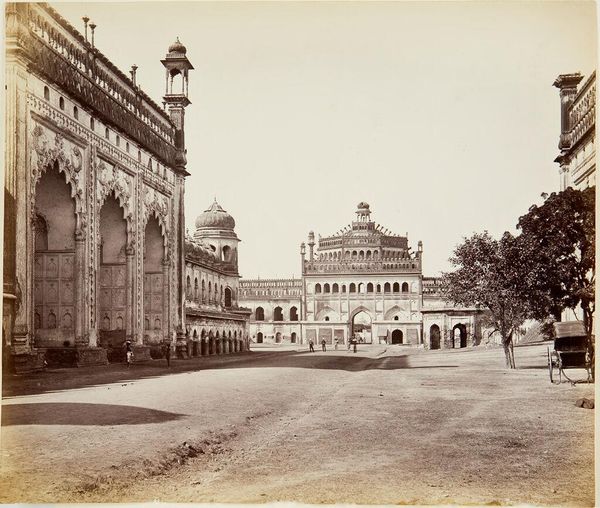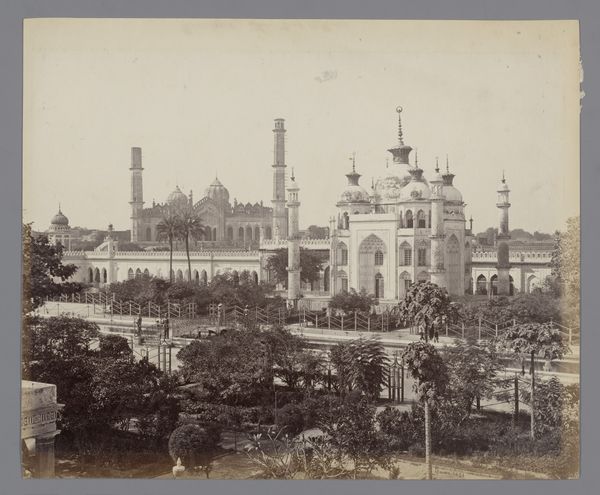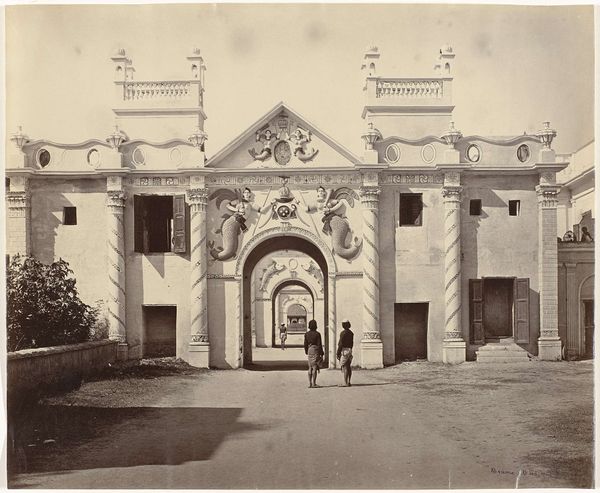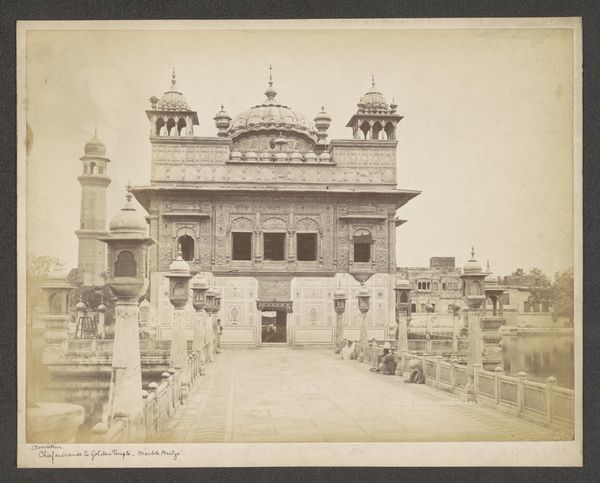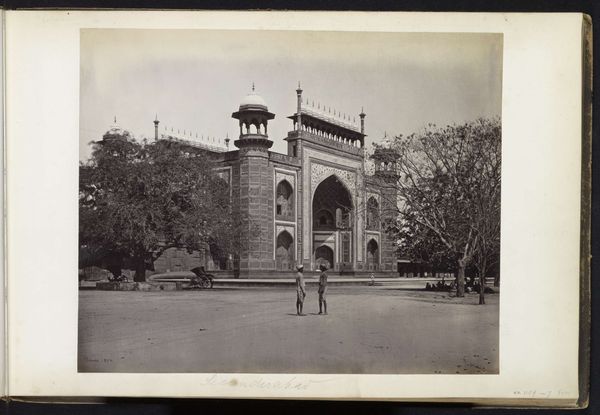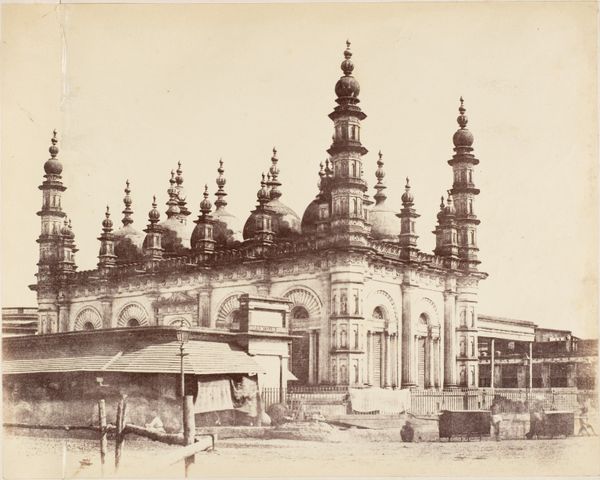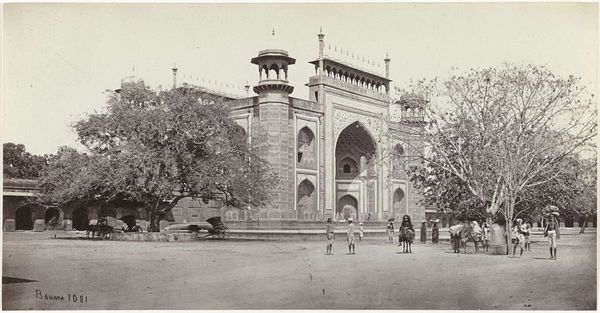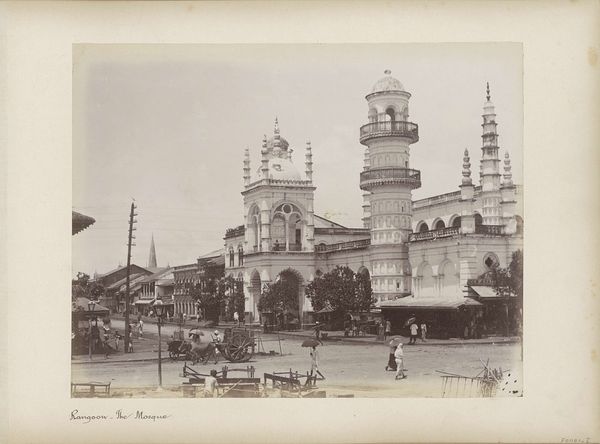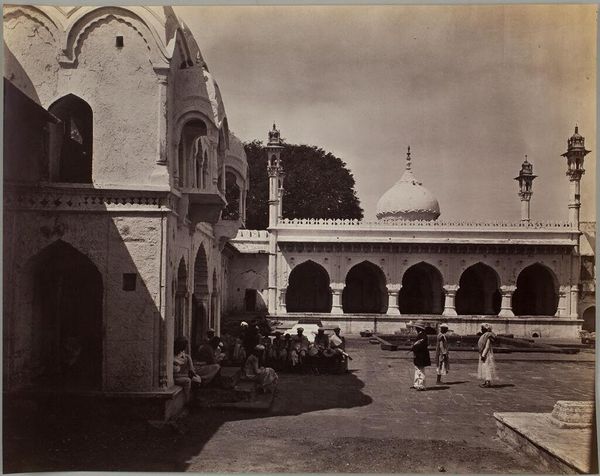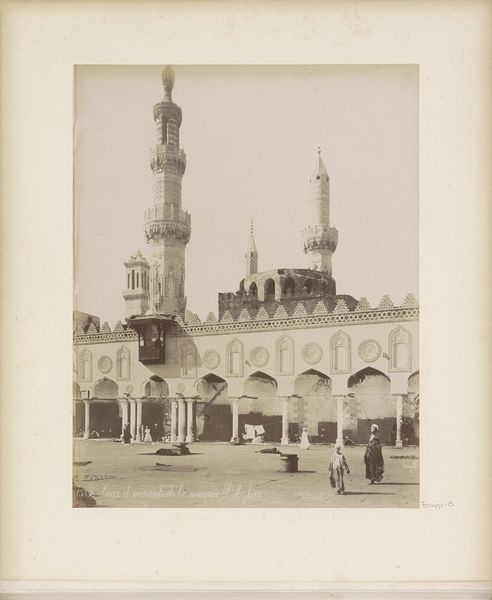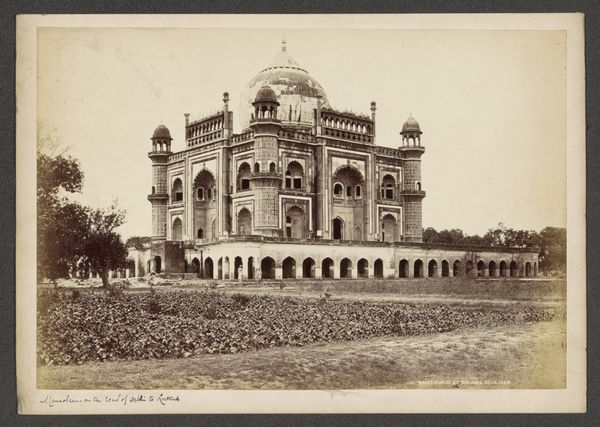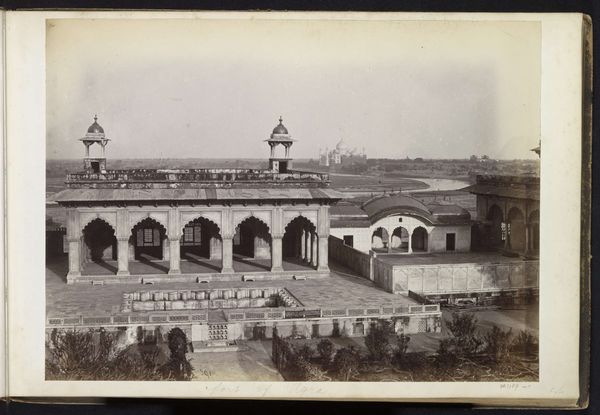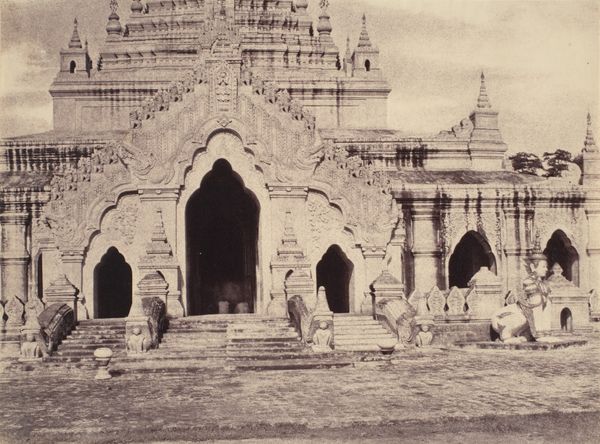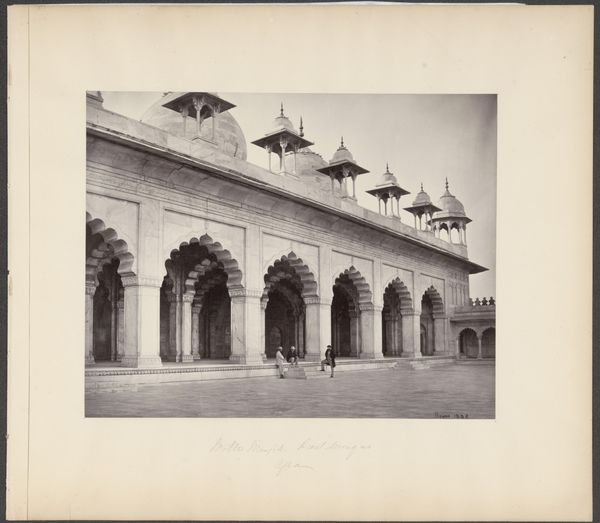
print, photography
# print
#
asian-art
#
landscape
#
archive photography
#
photography
#
historical photography
#
historical fashion
#
orientalism
#
19th century
#
cityscape
Dimensions: height 236 mm, width 294 mm
Copyright: Rijks Museum: Open Domain
Editor: This is Samuel Bourne's photograph, "Husainabad Gate in Lucknow, Uttar Pradesh, India," taken between 1864 and 1866. The symmetry of the architecture is so striking. It makes me wonder, what symbolic meanings do you see in this photograph? Curator: The gate itself acts as a powerful symbol, a threshold between worlds, both physically and metaphorically. Think of a 'gopuram' from Southern Indian temples. Don't you see visual and spiritual connections, irrespective of which belief system they are rooted in? Editor: I hadn't considered it in that light. Curator: And beyond the architecture, look at the people gathered. They create a sense of continuity, linking the past grandeur of the gate with the present pulse of daily life. What emotional impact does that create for you, thinking about cultural memory? Editor: It suggests that even grand historical monuments are, at their heart, part of everyday life. They're not just relics, but places where people gather. Curator: Precisely. The architecture serves as a silent witness, absorbing generations of stories. What do you make of the layering created by having another structure seen through the central arch? Editor: That almost creates another threshold or evokes the sense of depth within cultural memory. It stretches both time and space, suggesting that one space informs the other. Curator: A powerful reading. By engaging with the symbols and human elements, we're able to deepen our connection with history, viewing this architectural space not as a static relic but as an active carrier of cultural narrative. Editor: I never thought about photography having such powerful tools for constructing memory! Thanks for expanding my understanding.
Comments
No comments
Be the first to comment and join the conversation on the ultimate creative platform.
